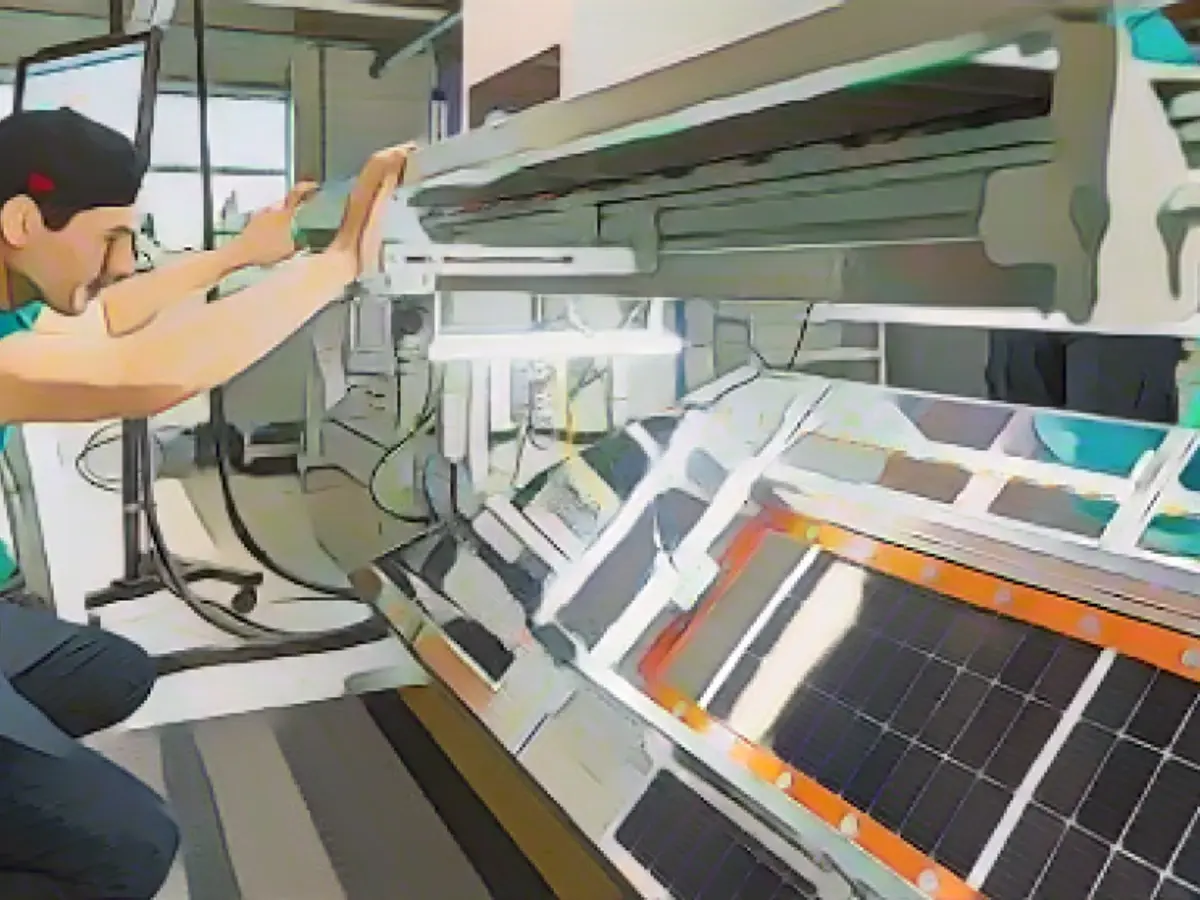Solarwatt Struggles Amidst Market Challenges
Dresden -
The solar panel manufacturer Solarwatt is facing a tough time due to current market distortions, which are impacting the entire solar industry in Europe. The company has been vocal about its disappointment with the German government's response to these challenges.
Stecker, the company's spokesperson, criticized the lack of swift and unbureaucratic action from European and German politicians in addressing the unequal competition conditions against Chinese and US manufacturers.
Market Disruptions
Both China and the US are disrupting the solar market with their substantial subsidies for the solar industry, notably through the "Inflation Reduction Act." This subsidy incentive is significantly impacting market dynamics.
Solarwatt's Investments
Solarwatt intends to invest tens of millions in research, development, and production between 2020 and 2023. Among its major investors is BMW's renowned shareholder, Stefan Quant.
Solarwatt's Impact and Future
Celebrating its 30th anniversary in January, Solarwatt has become a service provider linking the electricity, heat, and mobility sectors. The company offers a wide range of products, including electricity storage systems and customer solutions like balcony power plants.
Founded in the north of Dresden, Solarwatt weathered insolvency in 2013 and successfully repositioned itself.
Market Factors Affecting Solarwatt
- Chinese Dominance: The economies of scale, state support, and cost efficiencies in Chinese solar manufacturing create fierce competition, which leads to intense price wars affecting European manufacturers like Solarwatt.
- Import Dependence: Despite efforts to boost domestic production, European companies continue to rely heavily on Chinese imports, which have dominated the market with approximately 93 GW of PV modules imported in 2024.
- Regulatory and Grid-Related Bottlenecks: Challenges in permitting and grid expansion have hampered growth, affecting the efficiency of European manufacturers like Solarwatt.
- Policy and Financial Challenges: Higher interest rates in various European countries and scaled-back subsidy programs have elevated project financing expenses, causing market distortions.
Given the challenges, stakeholders are exploring ways to restore balance in the market. These responses include trade measures, policy reforms, financial support, and supply chain traceability standards.








